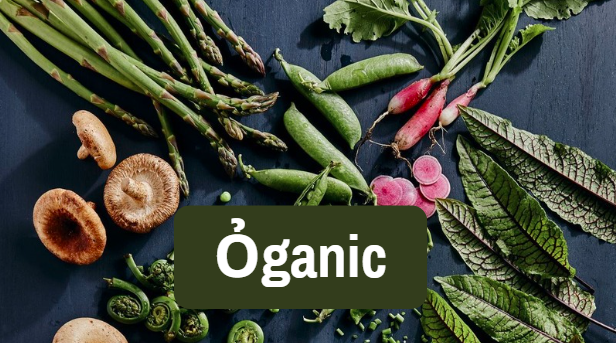Introduction to Ỏganic Living
The term “ỏganic” has become a buzzword in recent years, signifying a lifestyle choice that prioritizes natural, chemical-free products and practices. For many people, choosing ỏganic products is more than just a trend; it’s a commitment to healthier living and environmental sustainability.
This article will delve deep into the world of ỏganic living, providing unique insights and thorough analysis to help you make informed decisions about integrating ỏganic products into your life.
What Does Ỏganic Mean?
Defining Ỏganic
The term ỏganic refers to the way agricultural products are grown and processed. Organic farming practices are designed to meet stringent standards set by certification bodies, ensuring that products labeled as ỏganic are free from synthetic pesticides, fertilizers, and genetically modified organisms (GMOs). In the United States, the USDA Organic seal guarantees that a product meets these standards.
The History of Ỏganic Farming
Organic farming has its roots in early 20th-century agricultural practices. Farmers began to recognize the negative impact of chemical fertilizers and pesticides on the environment and human health. This led to the development of organic farming methods that prioritize soil health, biodiversity, and ecological balance. Today, ỏganic farming is a growing industry, with increasing consumer demand driving the expansion of ỏganic products in the market.
Health Benefits of Ỏganic Products
Nutritional Advantages
One of the primary reasons people choose ỏganic products is the perceived health benefits. Studies have shown that ỏganic fruits and vegetables can have higher levels of certain nutrients, including antioxidants, vitamins, and minerals. These nutrients are essential for maintaining good health and preventing chronic diseases.
Reduced Exposure to Chemicals
Conventional farming relies heavily on synthetic pesticides and fertilizers, which can leave residues on food. By choosing ỏganic products, consumers can reduce their exposure to these potentially harmful chemicals. This is particularly important for vulnerable populations such as children, pregnant women, and individuals with compromised immune systems.
Supporting Gut Health
Emerging research suggests that ỏganic foods may positively impact gut health. The absence of synthetic chemicals and the presence of beneficial microbes in ỏganic produce can support a healthy gut microbiome, which is crucial for digestion, immunity, and overall well-being.
Environmental Impact of Ỏganic Farming
Promoting Biodiversity
Ỏganic farming practices encourage biodiversity by fostering a variety of plants, animals, and microorganisms. This biodiversity is essential for maintaining healthy ecosystems, as it helps control pests naturally, enhances soil fertility, and supports pollinators like bees and butterflies.
Soil Health and Conservation
Healthy soil is the foundation of ỏganic farming. By avoiding synthetic fertilizers and using practices like crop rotation, cover cropping, and composting, ỏganic farmers enhance soil fertility and structure. This not only improves crop yields but also helps sequester carbon, mitigating climate change.
Water Quality
Ỏganic farming reduces the risk of water contamination. Synthetic pesticides and fertilizers used in conventional farming can leach into waterways, causing pollution and harming aquatic life. Ỏganic practices minimize these risks, protecting water quality and promoting healthier aquatic ecosystems.
Economic and Social Considerations
The Cost of Ỏganic Products
One of the main barriers to adopting an ỏganic lifestyle is the higher cost of ỏganic products. This is due to the labor-intensive nature of ỏganic farming, smaller scale production, and the rigorous certification process. However, the long-term benefits to health and the environment can outweigh these initial costs.
Supporting Local and Small-Scale Farmers
Purchasing ỏganic products often means supporting local and small-scale farmers who prioritize sustainable practices. This helps to strengthen local economies, preserve rural landscapes, and promote food security.
Accessibility and Equity
While the benefits of ỏganic products are clear, it’s important to address issues of accessibility and equity. Not everyone has access to ỏganic foods due to geographic, economic, or logistical barriers. Efforts to make ỏganic products more affordable and accessible are essential for promoting widespread adoption and ensuring that everyone can benefit from healthier, more sustainable food options.
How to Incorporate Ỏganic into Your Lifestyle
Starting Small: Prioritizing Key Products
For those new to ỏganic living, it can be overwhelming to overhaul your entire lifestyle at once. Start by prioritizing key products, such as the “Dirty Dozen” list of fruits and vegetables that are most likely to be contaminated with pesticides. Gradually expand your ỏganic choices as you become more comfortable and knowledgeable.
Gardening and Growing Your Own
One of the most rewarding ways to embrace ỏganic living is by growing your own produce. Even if you have limited space, container gardening or community gardens can provide you with fresh, ỏganic vegetables and herbs. Gardening also allows you to control the growing conditions and ensure that your food is truly ỏganic.
Supporting Ỏganic Brands and Farmers
Look for ỏganic brands and farmers who are committed to sustainable practices. Many farmers’ markets and grocery stores now offer a wide range of ỏganic products. By supporting these producers, you’re helping to promote a healthier food system.
Educating Yourself and Others
Knowledge is power. Educate yourself about the benefits of ỏganic living and share this information with others. By raising awareness and advocating for sustainable practices, you can help drive demand for ỏganic products and encourage more people to make environmentally conscious choices.
The Future of Ỏganic Living
Innovations in Ỏganic Farming
The future of ỏganic farming looks promising, with ongoing research and innovation aimed at improving efficiency and sustainability. Advances in technology, such as precision farming and organic pest control methods, are helping farmers produce more food with fewer resources.
Policy and Advocacy
Policy changes and advocacy efforts are crucial for supporting the growth of the ỏganic industry. This includes government incentives for ỏganic farming, stricter regulations on pesticides, and increased funding for research. By advocating for these changes, consumers can help create a more sustainable and equitable food system.
Global Impact
While ỏganic farming is often associated with local food systems, its benefits extend globally. Promoting ỏganic practices worldwide can help address issues like climate change, biodiversity loss, and food security. International cooperation and knowledge sharing are essential for advancing ỏganic agriculture on a global scale.
Conclusion
Embracing ỏganic living is a personal decision that offers numerous health and environmental benefits. By choosing ỏganic products, you can reduce your exposure to harmful chemicals, support sustainable farming practices, and contribute to a healthier planet. While the cost of ỏganic products can be a consideration, the long-term benefits make it a worthwhile investment. As awareness and demand for ỏganic products continue to grow, the future of ỏganic living looks bright, promising a healthier and more sustainable world for future generations.
FAQs about Ỏganic
What does ỏganic mean?
Ỏganic refers to the way agricultural products are grown and processed without synthetic pesticides, fertilizers, or GMOs. It emphasizes natural farming practices that promote soil health, biodiversity, and ecological balance.
Are ỏganic products healthier than conventional ones?
Ỏganic products can have higher levels of certain nutrients, such as antioxidants and vitamins, and reduce exposure to harmful chemicals. While more research is needed, many people choose ỏganic for the potential health benefits.
Why are ỏganic products more expensive?
The higher cost of ỏganic products is due to labor-intensive farming practices, smaller scale production, and the rigorous certification process. However, the long-term benefits to health and the environment can outweigh these initial costs.
How can I start incorporating ỏganic products into my lifestyle?
Start by prioritizing key products, such as those most likely to be contaminated with pesticides. Gradually expand your ỏganic choices, grow your own produce if possible, and support ỏganic brands and farmers.
Is ỏganic farming better for the environment?
Yes, ỏganic farming promotes biodiversity, improves soil health, and reduces water contamination. It supports sustainable practices that are better for the environment and help mitigate climate change.



